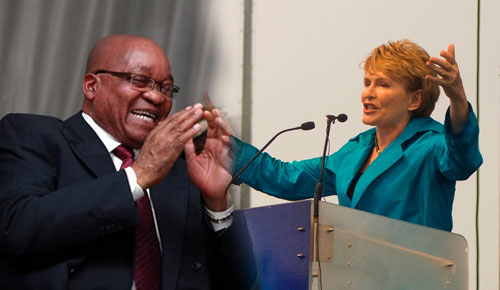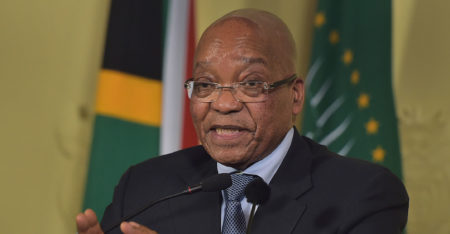
In some ways, it’s been SA’s first Internet election. On Wednesday, South Africans head to the polls to cast their votes in municipal elections. And the big parties have taken online campaigning to a new level.
Both the ANC and the Democratic Alliance have taken their campaigns to Facebook and Twitter, holding live “town hall” discussions on the micro-blogging service and also improving their websites.
The early verdict from analysts: the DA has won the online electioneering fight.
The DA has held “meetings” on Twitter on Sunday evenings using the hashtag #daqa. The ANC followed with #anclive, with sessions on Fridays.
Now, auditing firm Deloitte has analysed the Twitter debates of the two parties. In three DA sessions, the party generated 2985 tweets; two ANC sessions generated 1 100 tweets.
Deloitte says the biggest difference between the two campaigns was the ANC used a single account to engage with voters, while the DA opted instead to use personal Twitter accounts of party representatives. It says the ANC’s approach provided less reach for the party than the model used by the DA.
Not everything has gone the DA’s way, though. The party may have erred with its SMS campaign, in which it has urged people to vote for it. Some people have accused the DA of sending spam and warned it could be in violation of the Electronic Communications and Transactions Act. Text messages sent on Monday did not include an opt-out option.
The controversy forced DA leader Helen Zille (@helenzille) to tweet on Tuesday that the party got the SMS data “legally from commercial sources”. “Sorry for offending anyone. Future generation will be grateful that we did all we could.”
During this election campaign, President Jacob Zuma also joined Twitter, using the handle @SAPresident. However, at time of writing he had used it to tweet only four times. Zuma follows only one other Twitter user, @PresidencyZA, the official Twitter account of the president’s office.
A study conducted by Strategy Worx on behalf of research firm World Wide Worx shows the online electioneering model employed by the DA has been more successful than the ANC’s. The research compares website content and the use of social media, among other measures, of the DA, the ANC and other political parties.
The analysis also looks at the difference between the parties’ online presence during the 2009 general election and now and concludes that the DA’s online campaign has had more reach than the ANC’s and that its website is more accessible.
“The DA stands apart from the rest in usability, substance of content and use of social media,” says Strategy Worx MD Steven Ambrose.
He says that although the DA tops the tables in online electioneering, its overall rating for its online presence has fallen since the 2009 elections.
“This suggests they have not yet fully integrated the innovations that have emerged since then in Web design. Though they are more active in social media, they haven’t quite kept pace with the rapid evolution in this area,” says Ambrose.
The research shows that the ANC has improved its online presence since the 2009 general election. However, Ambrose says the party’s improvement has only come in the form of a cleaner, more usable website.
“The ANC still does not have a clear understanding of how to engage an online audience,” says Ambrose.
The Congress of the People (Cope) has been a laggard in social media and has done nothing to engage Internet-savvy citizens during its election campaign. Ambrose says the party’s online presence may even have had a negative effect on its campaign.
“Cope’s online presence is damaging to the party’s image, revealing they have little understanding of the online space at all,” he says.
Whether the various parties’ online campaigns have had much of an impact on the electorate is open to debate, of course. Many argue that services like Twitter are used only by a tiny, niche audience.
But one thing is clear: as Internet access becomes more available, online campaigning will become an entrenched feature of future elections. — Candice Jones, TechCentral
- Subscribe to our free daily newsletter
- Follow us on Twitter or on Facebook




